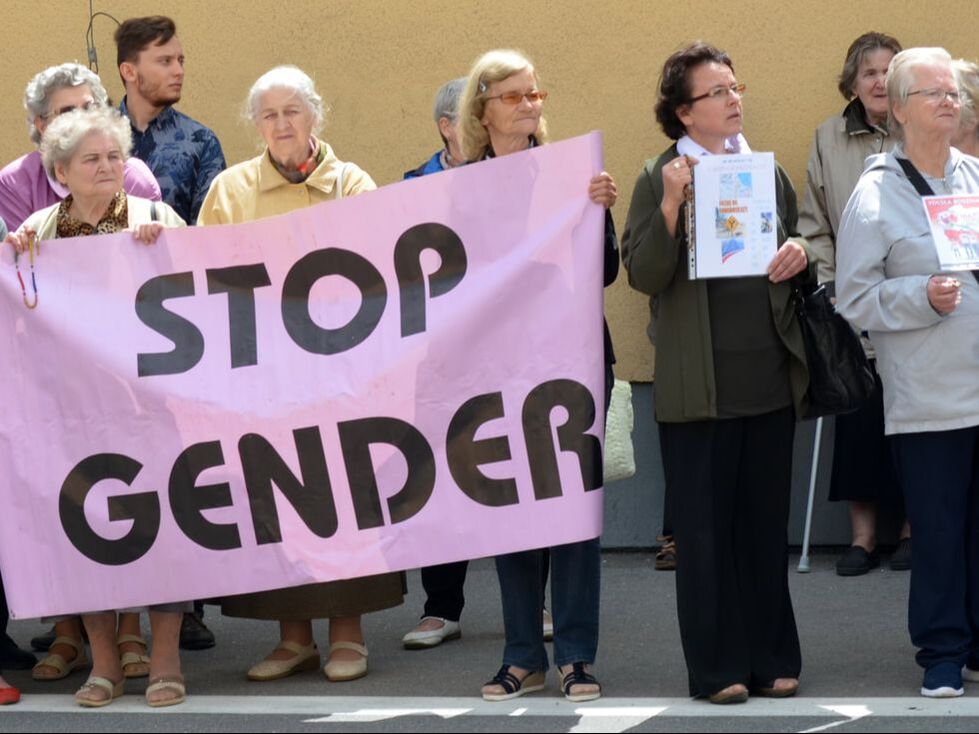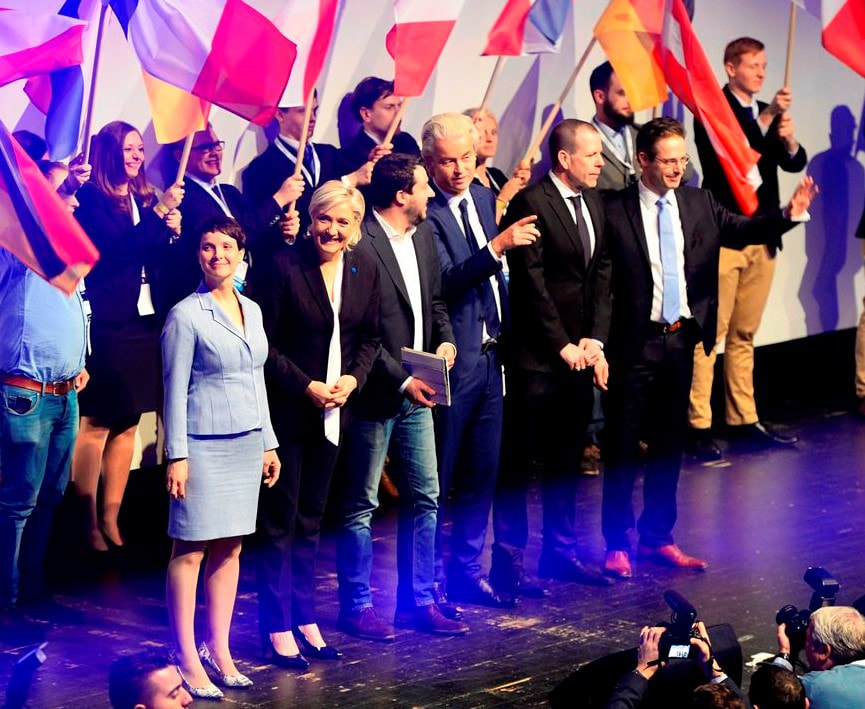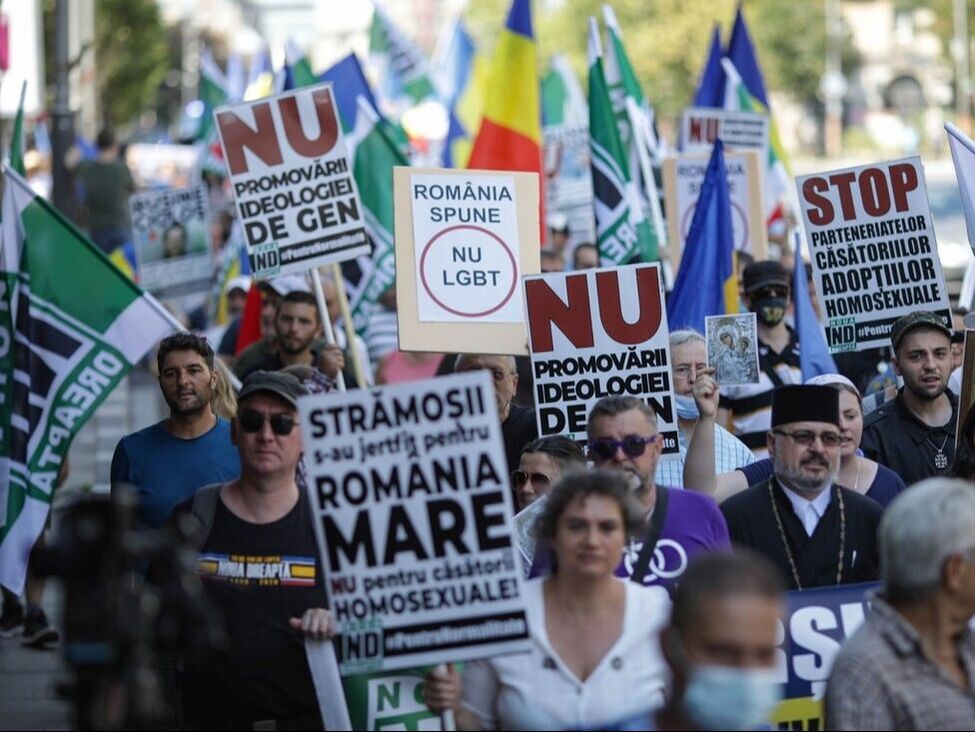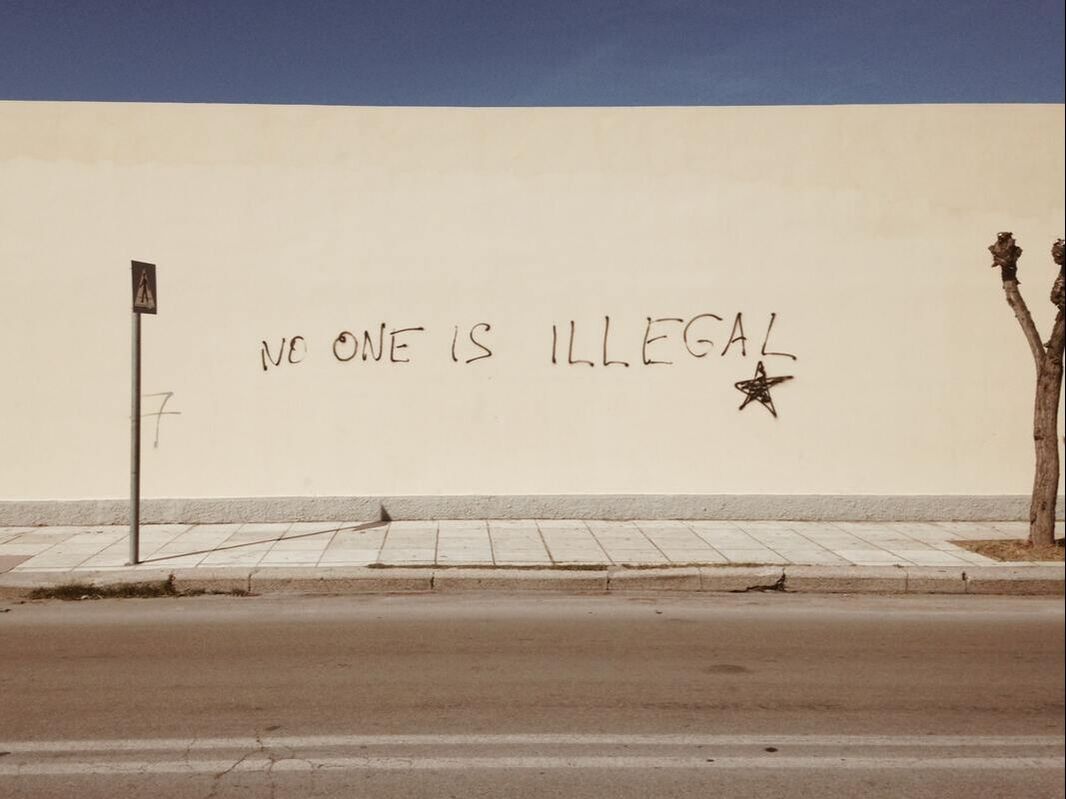|
|
|
Blog post by George Newth, University of Bath
In late December 2023, UK prime minister Rishi Sunak gifted his Italian counterpart, Giorgia Meloni, an early Christmas present: his speech at the so-called Atreju rally organized by Meloni’s far-right Fratelli d’Italia (Brothers of Italy) party, contributed to a further legitimization and mainstreaming of far-right politics in Europe. By focusing predominantly on migration, Sunak employed a racist, xenophobic and nationalist discourse. When used by mainstream politicians, such narratives hold the power to euphemize, legitimize and normalize the politics of fear and hatred promoted by the far-right. Sunak’s appearance came barely a year after Meloni’s victory in the 2022 snap elections in Italy. The results of this poll marked a watershed moment in what has been a gradual but steady normalization, mainstreaming and rehabilitation of the far-right following the end of the Second World War. Meloni is Italy’s first far-right prime minister since 1945, and Fratelli d’Italia – the leading party in Italy’s current governing majority - has roots in Italy’s fascist past. In the weeks leading up to the 2022 elections, one of Meloni’s key discursive strategies was to depict her party as ‘centre-right’ and ‘conservative’. Since then, Meloni’s self-representation as a ‘moderate’ has been helped considerably by mainstream voices; Sunak’s speech in Rome was the latest step in this disturbing process.
0 Comments
Gender, as expressed on namely the bodies of Muslim women, is positioned at the centre of the radical right’s linkage between migration and religion. This link is visible in the persistent debates on the ban of Muslim body-covering, which in Austria has been promoted by the Austrian Freedom Party (FPÖ) since the turn of the century.
FPÖ’s debates on the ban of Muslim body-covering – of the headscarf in kindergartens and schools or of full body-covering in public spaces – which re-emerged since 2015, illustrate that the radical right instrumentalizes the intersection of gender, body and religion in its search for new forms of governing. As I explore in my recently published Identities article, ‘Radical right populist debates on female Muslim body-coverings in Austria. Between biopolitics and necropolitics’, the radical right’s debates over female Muslim body-covering are embedded in the neoliberal reorganisation of societies and a crisis of governability, which radical right-wing actors use to implement their own biopolitical and necropolitical projects.
A broad and perhaps underappreciated feature of radical right populism is its simultaneous mobilization of cultural Christianity, on occasion combined with secularism, and women’s (and sometimes LGBT+) rights in a racializing, anti-immigration, and anti-Islamic discourse. Take for example the recent reaction in the USA of Republican Representative Marjorie Taylor Greene, who proclaimed on Twitter that ‘I am being attacked by the godless left because I said I’m a proud Christian Nationalist’ and added that she is even being called ‘a Nazi because I proudly love my country and my God’. By the same measure, in Italy, the League (La Lega) chairperson Matteo Salvini has previously maintained publicly his certainty that ‘Madonna will bring us the [political] victory’ and praised in religious conservative media the ‘traditional (heterosexual) family’.
Concocted by the conservative quarters of the Vatican, the disparaging term 'gender ideology' has been taken up not only by the radical right, but also by some centre-left, liberal commentators, seemingly unconcerned with the concept's troublesome history. One notable example is the Economist's last year article denouncing the so-called 'trans ideology', titled A backlash against gender ideology is starting in universities. In my Identities article, 'Framing ‘gender ideology’: religious populism in the Croatian Catholic Church', I consider the provenance of how the 'gender ideology' frame was utilized by the Catholic church in Croatia – one of the earliest cases of widespread anti-gender mobilization in Europe.
Having gone through a double transition to a capitalist liberal democracy, the revived religious nationalism in Croatia competed with liberal values from the 'free Western world'. The generous Vatican agreements signed in the late '90s by the authoritarian, right-wing government provided fertile ground for a blossoming of Catholic evangelization and proliferation of lay activism. In contrast to current research on the populist radical right which demonstrates the manipulation of religion committed by political actors, I identify factions of the Church itself as populist entrepreneurs. Polarizing populist discourse is traced back to Pope John Paul II's warnings against 'the war of the powerful against the weak', and connected to newer doctrinal, papal writings on issues of gender, ecology and politics.
Populist parties and leaders have become important actors across the globe. The 2022 presidential elections in France, and parliamentary elections in Sweden, as well as Turkey’s 2023 presidential elections not only revived academic research on populism and stirred scholarly debate about how to conceptualize it, but also compelled electors and political actors to reflect on the political developments taking place on the populist right front.
In our Identities article, ‘The veil as an object of right-wing populist politics: A comparative perspective of Turkey, Sweden, and France’, we selected three countries which have extremely different religious, secular, and cultural contexts. We then analyzed the political statements by the radical right-wing parties in each of the chosen countries: the Justice and Development Party (Adalet ve Kalkınma Partisi, AKP) in Turkey, the National Rally (Rassamblement National, NR) in France and the Sweden Democrats (Sverigedemokraterna, SDs) in Sweden.
Cross-posted by Ideology Theory Practice
Discussion and debate about the far right, its rise, origins and impact have become ubiquitous in academic research, political strategy, and media coverage in recent years. One of the issues increasingly underpinning such discussion is the relationship between the far right and the mainstream, and more specifically, the mainstreaming of the far right. This is particularly clear around elections when attention turns to the electoral performance of these parties. When they fare as well as predicted, catastrophic headlines simplify and hype what is usually a complex situation, ignoring key factors which shape electoral outcomes and inflate far-right results, such as trends in abstention and distrust towards mainstream politics. When these parties do not perform as well as predicted, the circus moves on to the next election and the hype starts afresh, often playing a role in the framing of, and potentially influencing, the process and policies, but also ignoring problems in mainstream, establishment parties and the system itself — including racism. This overwhelming focus on electoral competition tends to create a normative standard for measurement and brings misperceptions about the extent and form of mainstreaming. Tackling the issue of mainstreaming beyond elections and electoral parties and more holistically does not only allow for more comprehensive analysis that addresses diverse factors, manifestations, and implications of far-right ideas and politics, but is much-needed in order to challenge some of the harmful discourses around the topic peddled by politicians, journalists, and academics. 'A radical Islamist terrorist targeted the nightclub (…) in order to execute gay and lesbian citizens, because of their sexual orientation. It’s a strike at the heart and soul of who we are as a nation.'
- Donald Trump
PRR’s LGBT stances The statement from then-Presidential nominee Donald Trump followed the 2016 mass shooting at Pulse, a gay nightclub in Orlando, Florida. Later, in 2020, Trump referred to himself as 'the most pro-gay President in America'. Simultaneously, he appointed overtly anti-LGBT candidates to judicial positions and oversaw various policies legitimizing the exclusion of LGBTQ+ people. Trump’s contradictory attitude towards LGBTQ+ minorities is emblematic of a broader Western trend in populist radical right (PRR) politics: PRR actors often adopt pro-LGBTQ+ stances whilst simultaneously propagating not only heteronormative family values and conservative religious moralities, but actively anti-LGBTQ+ policies.
The adamant defense of Christianity by far-right populists, as well as their ostensible display of Christian symbols such as the rosary, have been interpreted as hijacking religion from the hands of religious leaders and institutions. In fact, religious leaders have often accused far-right politicians of instrumentalizing religion for political gain, while far-right politicians have accused religious leaders of not defending Christianity against Islam. In a sense, far-right populist actors present themselves as being better interpreters and defenders of Christianity than religious leaders.
As many scholars have pointed out, the Christianity that far-right populism defends is a matter of culture and tradition imbricated in the historical past and national identity rather than a matter of faith. Thus, populists have been accused of not being ‘true believers’ and twisting religion to better serve their aims, and self-identified religious people who support far-right populism have been framed as victims of the political instrumentalization of religion. In my Identities article, ‘Hijack or release? On the heuristic limits of the frame of instrumentalization of religion for discussing the entanglements of populism, religion, and gender’, I explore the relationships between populism and religion from another angle, taking the transformations undertaken by religion and religiosity in contemporary societies into account.
In 2018, Romania organised a national referendum with the goal of defining in the Constitution that a family is composed of a man and a woman. Most of the parliamentary political parties openly supported the issue. The turnout failed to pass the 30% threshold needed for the referendum to be validated, but 93% of those who voted were in favour of this restrictive definition of family. It should be noted that the Romanian referendum was not an isolated case. Similar mobilisations around family and marriage issues have taken place throughout Central and Eastern Europe since the beginning of the 2010s (Croatia 2013, Slovakia 2015, or Slovenia 2015, for instance).
In our Identities article, ‘No populism’s land? Religion and gender in Romanian politics’, we analysed the way parliamentarians used religious symbols and contents within their speeches during the debates for the 2018 referendum. We focused our research on the parliamentary debates covering the adoption of the referendum in Parliament (2012–2018) and the follow-up period (2018–2020) to analyse the ways political actors conceive and represent religion and gender in contemporary politics.
An interview with Aurelien Mondon, by Giorgos Venizelos. This interview was first published in Populism, Issue 4, July 2021.
You keynoted the 5th annual Populism Specialist Group workshop which focused on the theme ‘Populism: New Perspectives’. What are your general impressions? Where is the field moving these days? The various panels and papers confirmed to me that part of the field is moving in some very interesting and promising directions and it was a real honour to provide a keynote for the Populism Specialist Group as it is to me the most exciting forum to discuss populism. This is because scholars who present at the workshop tend to come from more critical approaches. Sadly, it would be mistaken to think that this necessarily reflects the wider environment and, unfortunately, there is much out there that continues to play into what some of us have termed populist hype or anti-populism. While critical approaches have progressed in recent years and occupy now a central place in discussions on populism, there is still plenty of work to be done and plenty of damage to be undone, something that is unavoidable when a term like populism becomes so central to mainstream politics.
On April 11, 2015, Pia Kjaersgaard, former leader of radical right populist Danish People’s Party concluded in her opinion piece: ‘We must dare to say that Christianity is better than Islam’. One year later, during the so-called burkini debate in France, Marine Le Pen, leader of radical right populist National Rally (formerly National Front), wrote in her blog: ‘This is the soul of France that is in question (…) France does not lock away a woman’s body, France does not hide half of its population under the fallacious and hateful pretext that the other half fears it will be tempted.’
These examples illustrate phenomena that have interested both academics and the public following the rise of radical right populist parties in the last couple of decades. More clearly, how are religion and gender featured in the rhetoric of such parties? These debates reveal two paradoxes.
'Refugees must be taught how to best fit in': so reads the title of Times columnist Clare Foges following the fall of Afghanistan in August 2021 to the Taliban and the subsequent mass exodus of Afghan men, women and children towards Britain. This wilfully juxtaposes a ‘non-native’ other with the presumed ‘natives’ of the UK and places expectations on the new arrivals to adapt to ‘our way of life’. This emphasis on assimilation and the eradication of difference and is one of the core demands often placed on the racialised ‘non-native’, ‘foreigner’ or ‘non-integrated’ co-citizen on their arrival to the West. It is but one of many recent examples of a far right discourse of ‘nativism’ being published in a mainstream broadsheet, and passed off as ‘sensible politics’.
Much of the scholarship on the far right has taken an ‘ideational approach’ to nativism which entails the following three assumptions:
Populists are in power, not because they miraculously solved the overwhelming problems the world faces today but, rather, they have captivating stories to tell. While the recent rise of populism has led to an immense body of academic work — now an industry of its own — this bourgeoning scholarship has focused heavily on social and economic drivers, yet neglected the narrative force of such movements. In fact, if politics is basically about storytelling, populist politicians have perfected the art. An essential question is then: What do populisms narrate?
National (or identitarian) populist leaders simply tell the same stories to their people. If one were to simply hide the names of leaders and national references in the statements of populists, it would be quite difficult to identify whether they belong to US President Donald Trump, Hungarian Prime Minister Viktor Orbán or Turkish President Tayyip Erdoğan. They all position themselves to lead their respective nations with honour, well deserved from the past, through the troubled waters of the present, to the shores of a bright(er) future. By that narrative, they weave seemingly unconnected events to make sense of reality.
In October 2016, as the US election loomed, Farage (2016) wrote in an opinion piece in The Telegraph, a symbol of his media prominence:
The similarities between the different sides in this election are very like our own recent battle. As the rich get richer and big companies dominate the global economy, voters all across the West are being left behind. The blue-collar workers in the valleys of South Wales angry with Chinese steel dumping voted Brexit in their droves. In the American rust belt, traditional manufacturing industries have declined, and it is to these people that Trump speaks very effectively…. This kind of statement was not limited to far-right politicians claiming political support from the working class, but has become common in much of the political commentary since. To make sense of these developments, our Identities article, 'Whiteness, populism and the racialisation of the working class in the United Kingdom and the United States', examines the populist racialisation of the working class as white and ‘left behind’, and representative of the ‘people’ or ‘demos’, in the campaigns and commentaries. |
|
Explore Identities at tandfonline.com/GIDE |
|
The views and opinions expressed on The Identities Blog are solely those of the original blog post authors, and not of the journal, Taylor & Francis Group or the University of Glasgow.














